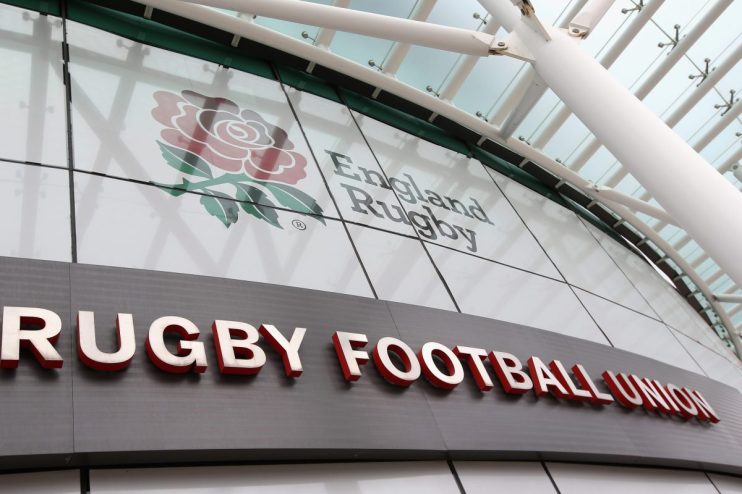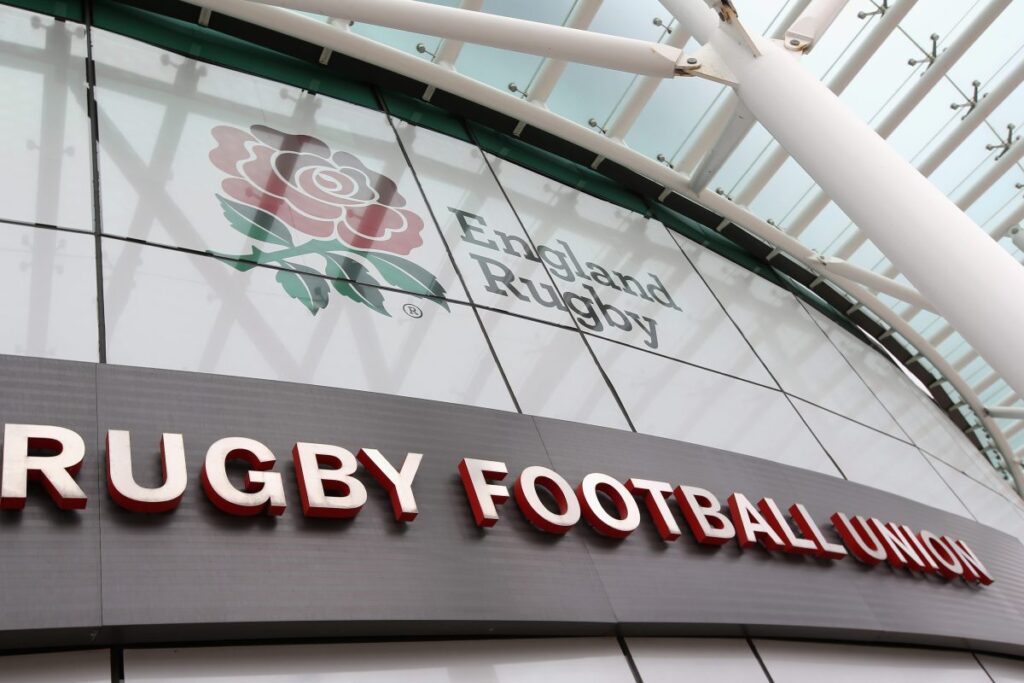| Updated:

A review has called for the RFU Council to be disbanded. City AM columnist Ed Warner, who was part of the review panel, explains its conclusions.
A number of readers have asked why I’ve been silent on the turmoil within English rugby in recent months. Resignation of the chair of the RFU; a special EGM called with the aim of ousting the CEO. Grist to the mill for me, surely?
The answer is that for the past year I have been an independent member of a group charged with reviewing the governance of the RFU and bound by confidentiality. Now, though, with the launch of a consultation process on our preliminary findings, I can give you my insights.
While I’ve not had a ring-side seat for the conflict over the executive bonus scheme that has made headlines in the media, I’ve had a view from a perch in the upper circle. Although the governance review commenced many months before the bonus scrap broke out, the furore provided ample justification for its existence.
What I’ve witnessed is a dysfunctional framework, effectively established back in the 19th century, that is clearly unfit for the modern era.
On all sides I’ve seen passionate, knowledgeable, committed rugby people locked in a structure that militates against effective decision-making and allows all parties an ‘out’ when it comes to taking responsibility for outcomes. If under pressure, one can always blame the system.
“Whatever outcome is determined, this is about developing a culture of shared ownership to give the game the best opportunity to grow.”
Foreword to the review’s consultation paper
There are four parties in the marriage that comprises English rugby’s governing bureaucracy. The broad membership, principally clubs, who get to vote at AGMs and (as seen recently) EGMs; a Council of (currently) 63 individuals elected primarily by those clubs and who have responsibility for some key decisions, including on the game’s regulations; a Board, comprising independent directors as well as council representatives, which oversees the running of the sport; and the hired executives who are charged with day-to-day delivery.
Dissatisfaction with this unwieldy infrastructure has bubbled for decades. The most recent evidence of its weaknesses came with the change to tackle height rules in late 2023.
A backlash against the botched announcement of a new, lower height restriction flushed out the confused process behind the change. Whose responsibility was it? Council, Board, executive? All or none, depending on how you wanted to interpret what had gone on.
The consultation process undertaken by our review group so far has felt like an ultra marathon. Views have been sought from across rugby. And then sought again. And again.
The more steeped my review colleagues are in the sport, the greater the pressure I can see they have been under from connections who are anxious that the outcomes may not be to their liking, and who have been persistent in pressing home their opinions.
One role of us independents has been to pull debate back up to the big picture, to remind colleagues at regular intervals that it will be impossible to please all parties in a sprawling sport that has such engrained interests, often with associated privileges.
So, then, to our initial thoughts, as set out in a consultation document that was made available publicly on Wednesday.
At heart it contains a bold preference – that while the Board should be ultimately responsible for all decisions made by the RFU, the power to run rugby should be devolved to the lowest appropriate level.
The men’s and women’s professional games are already having boards established to manage their interests. In parallel, grassroots rugby across the country should be controlled by those with relevant expertise who are closest to the local action.
Independence is an elastic concept. I chair GB Wheelchair Rugby, which receives some support from the RFU, including office space at Twickenham. But I’m not a “rugby person”, and so can be deemed independent for the purposes of this review.
By contrast, future chairs of the RFU board should ideally have a deep understanding of – and love for – the game, while being entirely independent of any interest groups within it.
The headline-grabbing corollary is our suggestion that the RFU Council be disbanded entirely, or alternatively be replaced by a smaller collection of selected (not elected) individuals who are available to be consulted as expert advisors when necessary.
I’ve no doubt this will rankle with a number of existing Council members, but am hopeful that the logic of this streamlined structure, empowering those within community rugby, will win the hearts and minds of the majority.
None of this lets the RFU board and executive off the hook. In fact, it makes it near impossible for them to wriggle out of their responsibilities. Which is just as it should be.
All, then, will rest on the effectiveness of the system established to identify appointees to the Board, and on the willingness of clubs to exercise their influence, as enshrined in their voting rights, to ensure that the directors and the executives they employ are held firmly to account.
Most sports are beset by some degree of tension between their members and those selected to govern. Occasionally minor differences of opinion – invariably suffused with passion – become major schisms. If structures are unclear or unwieldy, then such challenges become dimensionally more difficult to resolve.
English rugby finds itself in just such a place. Unless it cleans up its lines of accountability and ensures it has selection processes to place the right people in the right roles, then tackle height and bonus schemes will simply be replaced by a series of other issues in the years ahead.
What next? The consultation process runs until 30 June. Once responses have been digested, the review group will make final recommendations in the autumn. The RFU Council commissioned the review, and so will have first say.
Our hope is that it will clear the way for a membership vote this year so that, if approved, our proposals are implemented before the start of the 2026-27 season.
There have been RFU governance reviews before. This, at last, seems like the time for one to result in meaningful change in a sport beset by challenges but replete with glorious opportunities too.
You can read the consultation paper and respond to our call for input here.
Scripted to perfection
The Red Roses’ single-point win over France to secure a Women’s Six Nations grand slam was just what the upcoming Women’s Rugby World Cup marketing team needed.
Sporting jeopardy sells tickets. There were 37,573 at Twickenham on Saturday. Expect a full house for the double header of final and bronze match on 27 September.
Boiled heads and rotten eggs
You won’t be surprised that I’m not on TikTok, but this one pinged into my WhatsApp and I couldn’t resist passing it on to you.
I was way back down the course when pro-Palestine protesters tried (and failed) to disrupt the elite men’s race at the London Marathon. Have they not learned from Just Stop Oil that such antics take a political cause backwards in the eyes of the public? Emily Davison’s death at the 1913 Derby is not the go-to model today.
Palestinian flags were much in evidence along Sunday’s route, especially around the Cutty Sark. My favourite political statement, though, was spotted among the blizzard of placards sending motivational messages to individual athletes. It read: “Running better than Thames Water”.
As I stumbled, head boiling, through Green Park after the unseasonably hot race, I met an American who had just completed the full set of Abbott World Marathon Majors. She showed me the tattoo on her inner wrist: “Mind Over Matter”. Nuff said!
Doubling down
Spectating family found themselves on race day shut out of an overcrowded Canary Wharf tube station next to Sadiq Khan and two burly, ear-pieced bodyguards. Not even the Mayor can override safety precautions when Londoners, lured by the sunshine, come out in droves to watch the marathon.
Khan had just declared his support for a bid to bring the World Athletics Championships back to London in 2029. The next day he reiterated his ambition for the city to host the 2040 Olympics and Paralympics. I’ll return to this subject when my legs are moving freely again next week.
‘You can’t buy guys’
How often do you get a round of applause after a speech in the workplace? Check out Palace manager Oliver Glasner’s post-match effort here. Top stuff.
I guess it could be his closing announcement of four days off work that prompts the clapping, though. What team in any industry would turn their noses up at that?
Ed Warner is chair of GB Wheelchair Rugby and writes his sport column at sportinc.substack.com



